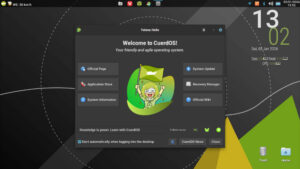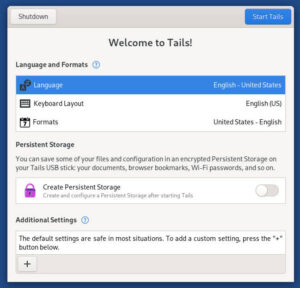TuxCare has added Rocky Linux 9.6 to its ‘Enterprise Support’ service that had been exclusive to AlmaLinux.

Tux Care, which is mostly known for supporting Linux distributions that have reached end of life, announced last week that it has expanded its Enterprise Support services to include support for Rocky Linux 9.6, including FIPS-compliant updates for certified releases. The company already offered Extended Security Updates for AlmaLinux 9.2, 9.6, and 9.10 — also including the FIPS-compliant updates.
This is just another example of how badly IBM’s Red Hat shot itself in the foot with its anticompetitive shuttering of the downstream Red Hat Enterprise Linux clone CentOS. That move was announced in 2020, a little over a year after the deal that made Red Hat a wholly owned IBM subsidary was finalized.
At that time, CentOS and Oracle Linux were about the only alternatives to Red Hat’s server (although there were a few lesser known RHEL clones available, such as Springdale Linux and Japan’s Miracle Linux). These days, all of these still exist, along with more popular newcomers AlmaLinux and Rocky Linux, both of which were born as a result of Red Hat’s CentOS actions.
Also as a result of CentOS’s demise — as well as Red Hat’s attempt to make RHEL code inaccessible — Oracle, SUSE, and CIQ formed Open Enterprise Linux Association, tasked with ensuring public access to RHEL’s source for the purpose of supporting downstream community and enterprise distributions.
Also growing up around these RHEL clones and OpenELA is a healthy economic community. In addition to TuxCare (which is owned by CloudLinux, the company behind AlmaLinux), this includes CIQ (which develops Rocky Linux), and a large number of hosting companies that had been dependent on CentOS Linux but which now make use of AlmaLinux or Rocky Linux instead.
Tux Care’s Bang for the Buck Proposition
You might be excused for wondering why anyone would pay TuxCare for its Enterprise Support, when all AlmaLinux and Rocky Linux releases covered by the program are still supported by their respective developers. The answer is that you get a lot more support — and hand-holding — than you’ll ever get from the AlmaLinux and Rocky Linux foundations.
Here’s a quick once-over of what’s included:
- Extended Lifecycle: TuxCare offers to extend the distro’s lifecycles beyond the standard 10 years, for up to 16 years of support.
- 24×7 Expert Support: Provides round-the-clock access to Linux specialists for quick troubleshooting, system migration, kernel crash analysis, and package issues.
- Proactive and Rebootless Security Updates: Delivers automated live patches (KernelCare and LibCare) for kernels and critical libraries, slashing vulnerability windows and reducing downtime due to reboots.
- Compliance Assistance: Offers FIPS 140-3 compliant patches for certified environments, rapid FIPS recertification for updates, and help with hardening and mapping CIS/STIG standards to PCI-DSS/ISO27001.
- Enterprise-grade Application Support: Covers application-level troubleshooting, data storage and backup assistance, upgrades, and migration services with flexible pay-as-you-go options.
- Flexible Packages: Offers self-service and tailored solutions, allowing businesses to choose support levels and bundles as-needed.
At this point you might be asking: if you’re going to be paying for support anyway, why not just go with RHEL and purchase Red Hat support subscriptions?
Answer: it’s still cheaper to go the TuxCare route, and in many ways support from a third party such as TuxCare is more flexible.
Here’s a bit of comparison:
Coverage: Both TuxCare and Red Hat offer 24×7 expert support, kernel-live patching (avoiding reboots), security updates, compliance assistance, and assistance with migrations and upgrades.
Longevity: TuxCare frequently provides a longer lifecycle, while Red Hat typically caps standard support at 10 years, with extended support options available but time-limited and more costly.
Live Patching: TuxCare’s KernelCare technology provides rebootless patching for kernels and libraries on AlmaLinux and Rocky Linux; Red Hat offers kpatch for RHEL, but KernelCare has more advanced rollback features and easier use across distributions.
Application Support: Red Hat support is tightly integrated and robust for RHEL-specific ecosystems, while TuxCare has flexible “pay-as-you-go” models and works with mixed environments that include multiple Linux flavors, which can benefit cost-conscious, heterogeneous infrastructure teams.
Compliance: Both assist with regulatory, FIPS, and CIS/STIG requirements, though Red Hat’s compliance solutions are sometimes more tightly bound to their subscription ecosystem.
“Enterprises want the freedom to run community Linux distributions like AlmaLinux and Rocky Linux without sacrificing security, stability or compliance,” said Michael Canavan, Chief Revenue Officer at TuxCare. “With our expanded Enterprise Support, we’re delivering rapid response and expert guidance so IT teams can focus on their business, not on fighting fires.”
CIQ’s Alternative for Rocky Linux
Enterprises with a large number of servers might want to do some shopping before jumping into a service contract, however. For example, CIQ offers Rocky Linux From CIQ, a commercial version of Rocky Linux that includes enterprise-level service, legal indemnification, and SLOs for patching and updates, for a price that can be competitive for enterprises deploying the distro at scale, but not for smaller users.
More information about TuxCare’s Enterprise Support can be found on the TuxCare website.
Christine Hall has been a journalist since 1971. In 2001, she began writing a weekly consumer computer column and started covering Linux and FOSS in 2002 after making the switch to GNU/Linux. Follow her on Twitter: @BrideOfLinux






